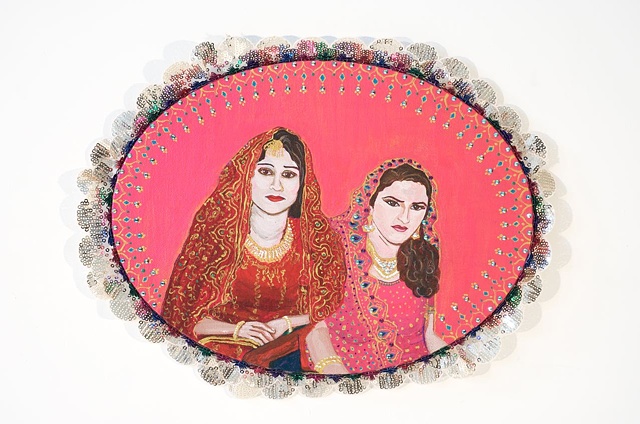Paintings
Rape, Abichandani reminds us, is not only an issue of international warfare. In Second Wife (for the love of woman) Mukhtaran Mai and her co-wife (2010), we are introduced to two wives: the first wife, Rukhsana, more prominently portrayed, and the second, Mukhtaran, in the background to the right. Both the frame and the wives are bejeweled for the wedding of Mukhtaran to Nasir Abbas Gabol. Embedded within deep bridal fuchsia-pink with lace around the edges, mimicking the edges of a dupatta2, the women look out at us with a certain quiet acceptance of life. The work seems to extend an easy read of two women as co-wives, a quick critique of Islam's allowance for polygamy and oppression of women as being non-agentive and complacent, and yet the depth
of story that this single frame depicts is much like a complicated novella. Mukhtaran Mai is hailed as a feminist icon in Pakistan, but not because of the marriage to Gabol, her ex-bodyguard3. Mukhtaran Mai was the victim of a gang rape as honour revenge by the Mastoi clan in Meerwala, Pakistan. Her subsequent marriage is now used to provide rape victims with the hope that life goes on - bearing in mind the critique that such a "life" is based upon socio-cultural conditions that continue to be patriarchal - even after such a horrific incident. Having established her own rules in their marriage and a nonprofit organisation for the rights of marginalised rural women in Southern Punjab4, Mukhtaran Mai chose to re-enter into the folds of patriarchy on her own terms.
